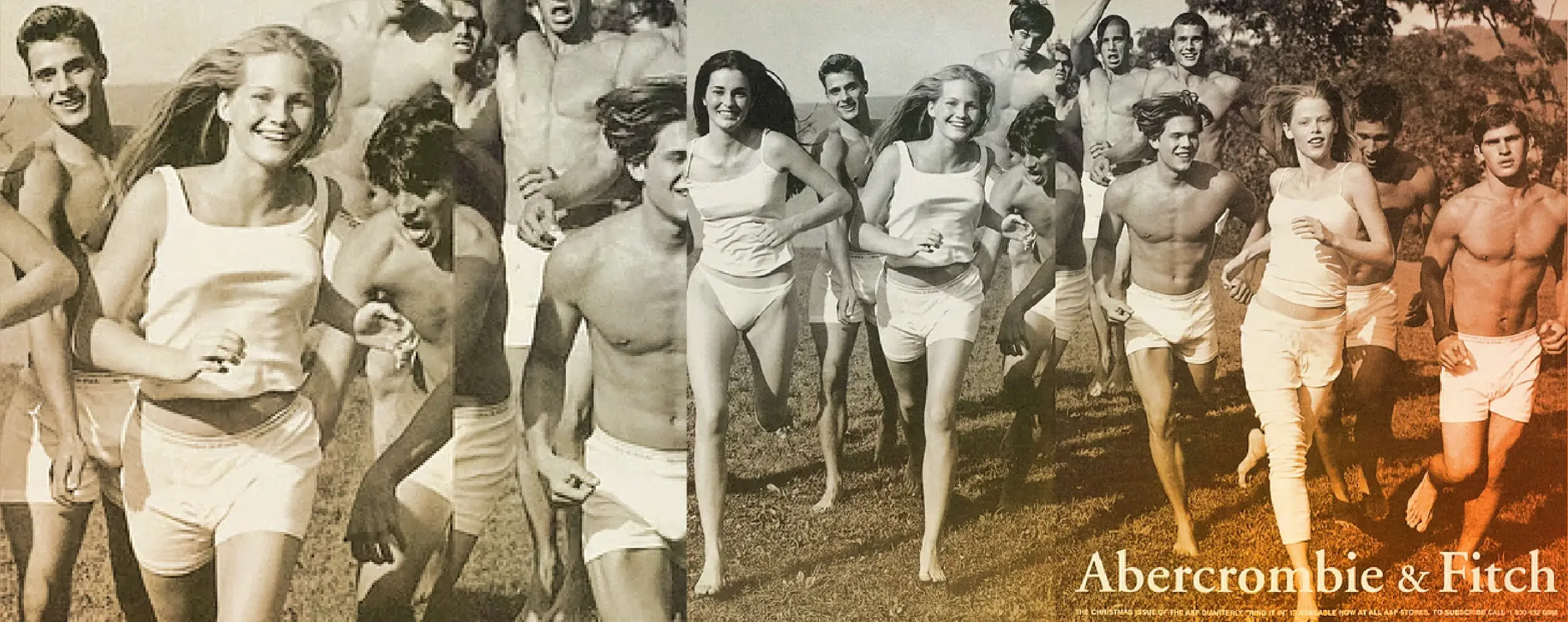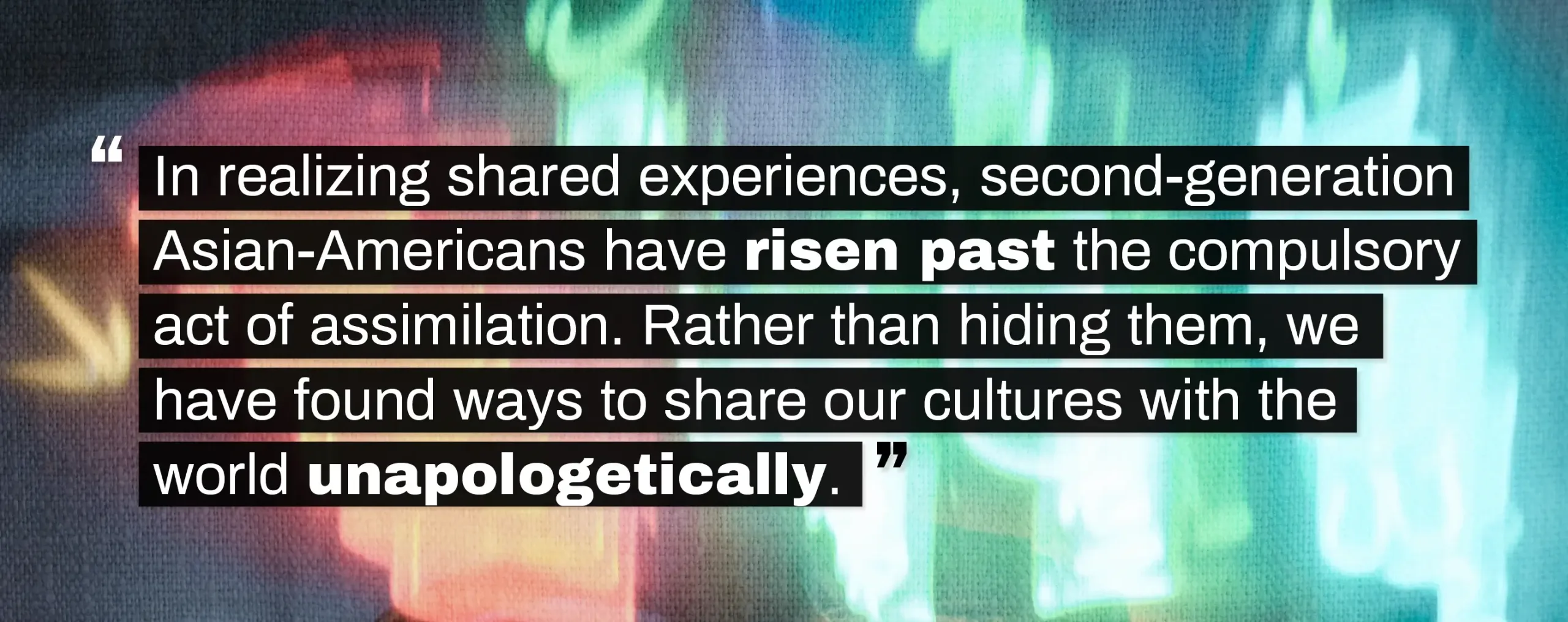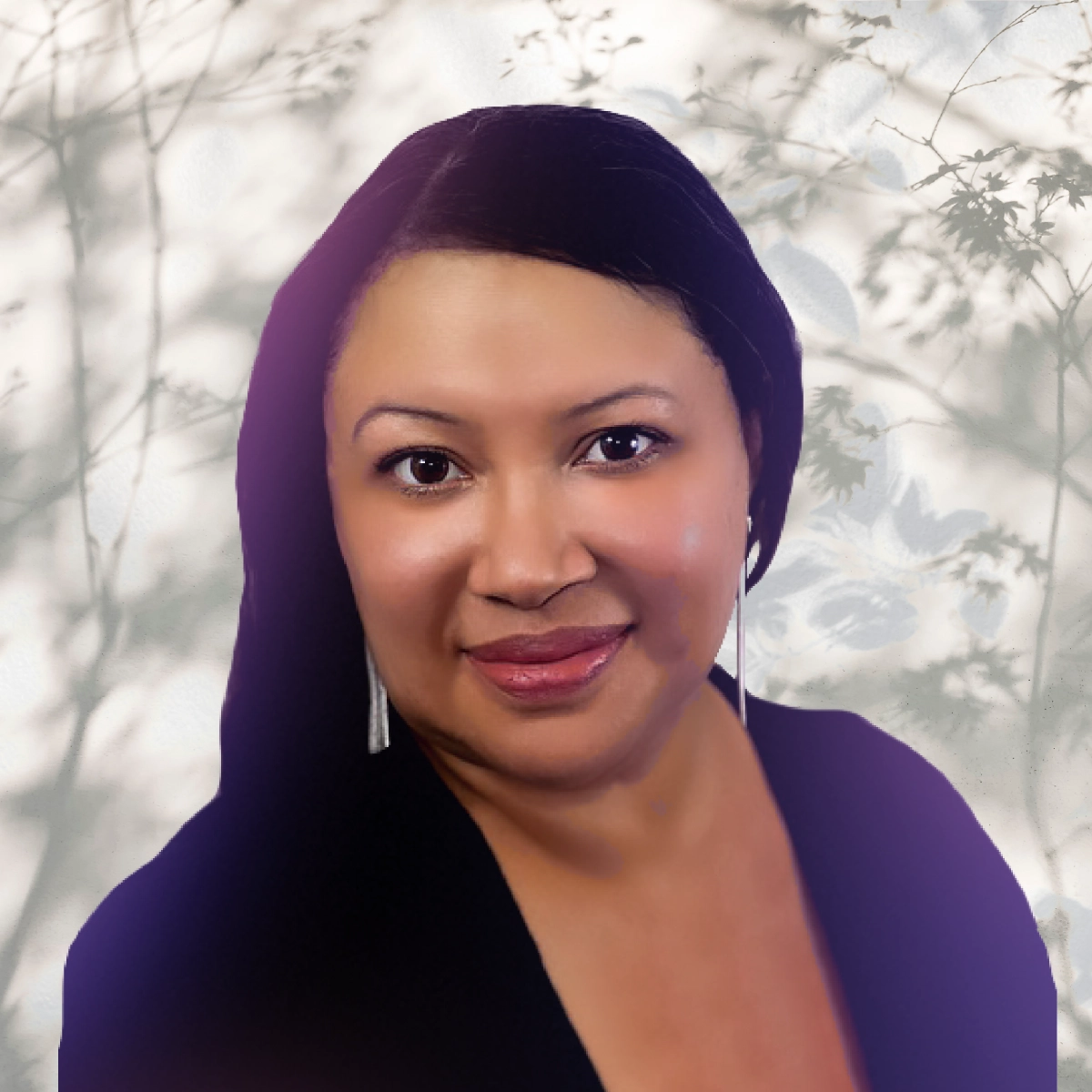In the 2022 Netflix documentary White Hot: The Rise and Fall of Abercrombie & Fitch, millennial audiences are invited to walk down memory lane. The navel-gazing tune of “My Own Worst Enemy” by Lit sparks nostalgia as we revisit our generation’s most coveted brand, Abercrombie & Fitch. This time, shocking truths are unveiled about its discriminatory marketing campaigns and hiring practices. Several former employees describe the brand’s celebrated “All-American” teenage look as exclusionary by design, especially for those who didn’t fit the look. The documentary recounts a 2004 class-action suit where many former employees of color accused the corporation of discriminating against them by preferentially offering positions to Caucasian males.
One former employee, Anthony Ocampo, wasn’t re-hired because there were “already too many Filipinos working at this store.” Jennifer Sheahan recounts being laid off with other Asian employees after a corporate representative observed the need for staff “who looked like the [white] Abercrombie models.” Samantha Elauf, a Muslim woman, never had the chance to work at a store because she wore her Hijab to an interview.
The stories shared in the documentary dig deeper beyond the explicit discrimination and surface a certain feeling of uncertainty shared by many second-generation Asian Americans. It is that feeling of not being “American enough” to fit in and not Asian enough to relate to (or even participate in) their own culture. There is a word for this; it’s called Racial Imposter Syndrome. Popularized by a 2018 episode of the NPR podcast Code Switch, Racial Imposter Syndrome describes feelings of insecurity and self-doubt that arise when individuals’ sense of their racial or ethnic identity doesn’t fit with how others perceive them. With a vague sense of belonging, they feel like an “imposter” trying to fit into a community that doesn’t fully accept them.

Like every American teen, we all wanted to be “girls that wear Abercrombie & Fitch,” just as LFO once sang. We shared the same romanticized image of their all-American ads of hanging out with friends on a lush glen. Yet even after paying admission, cash in hand, we’ve been denied access at the gates to the very thing we wanted.
The journey of being born into one very traditional culture with the unspoken expectations to fit into another can feel like an overextending straddle. For many Asian Americans, the dissonance started when exposed to the family dynamic of our white counterparts. These comparisons were drawn with envious eyes, from pizza served for dinner to being allowed to wear shoes around the house. To “level up,” we’d assimilate as much as we could: rolling our eyes at the demand to wear slippers around the house while scoffing at the same rice and meat dish every night. The desire to fit in met with the overwhelming “otherness” was unexplainable then but remains painstaking, even in clear hindsight.
The faith we hold in The United States being a melting pot is undoubtedly aspirational. We see diversity in our day-to-day experience. Stunting is the idealization of American Exceptionalism—the idea that the United States is inherently different from other nations—sets that unspoken expectation of assimilation. Being part of an in-crowd has always been ingrained into our psyche. This desire also reveals a shared feeling among second-generation Asian Americans that their internal identity conflicts with what others perceive them to be.
There lies an uncertainty about where to fit in but, more importantly, where to belong culturally. According to Everyday Feminism, Cultural Dysphoria is “the dissonance between the social expectations for an individual’s broad cultural performance (or identity) and their desired embodiment of that culture.” As we all know, Western Colonial culture is no stranger to assigning identity. As a result, many people, not just Asian Americans but also people of color, mixed-race, and mixed-gender, question themselves.

Relatable content for Asian American millennials was an elusive feat in the early 2000s. For many, hip-hop and R&B music was an immediate, electrifying connection. Comedian Aziz Ansari talks in his standup about growing up in the south, where MTV was the only source of culture. Rap, to him, was both relatable and bigger than life. According to writer Stephanie Zhang, rap to Asian Americans is utilized as a “means to escape otherness.” Her research on rap music focuses on Asian Americans turning to Blackness when feeling othered. With a deep history birthed out of the fused Latinx & Black communities’ lived experiences, AAPI found a connection to a narrative that provides a sense of solidarity amidst a history of oppression.
The rise of Asian American internet-famed rappers (Far East Movement, Traphik, Jay Park, Dumbfoundead, Heems, Anderson Paak, and Awkwafina, to name a few) have been praised by their AAPI counterparts along with much (rightfully so) criticism from the Black community at large. While rap serves as a medium for relatability, using it as a catalyst for expression can be seen as a reductive appropriation of another culture’s struggle. However, when a sense of belonging seems lost from the get-go, Asian rap was the first of many swings at finding an authentic voice. The image becomes less jarring when learning that many Southeast Asians (Cambodian, Filipino, Tongan, and Vietnamese, to name a few) grew up in the U.S. with similar conditions that Western culture often assigns only to Latinx and Black people. Music has always been a universal means of expression for any community that wants to tell its story.
Second-generation Asian Americans continue to find their way to establish an authentic voice and platform. By way of storytelling, comedy has brought much relatability and relief through the power of humor and laughter. Filipino-American comedian Jo Koy has shared his humbling moments growing up with a Filipino mother. From disparaging (albeit tough-loving) comments to watching her steal sugar packets and napkins from restaurants, many second-generation Asian Americans have rolled on the floor laughing over such common ground. Other cultures, from Hispanic to Black families, have found out that they have mothers precisely like his.
In realizing shared experiences, second-generation Asian-Americans have risen past the compulsory act of assimilation. Rather than hiding them, we have found ways to share our cultures with the world unapologetically. Korean and Filipino food truck businesses continue to grow from coast to coast. Additionally, restaurateurs like David Chang have brought Eastern foods to Western tables in a post-Bourdain world. Asian American Youtube channels, like Fung Brothers, have created relatable content about what it means to be Asian in America. Books, television shows, and movies have been on an exponential rise with Asian American representation. The author and poet Ocean Vuong recently won the Macarthur Genius grant, where he completed his book On Earth, We’re Briefly Gorgeous, a testament to his mother, who cannot read. Having launched her career as a comic after writing for the sitcom Fresh Off the Boat, Comedian Ali Wong takes it a step further for representation and feminism by doing her comedy special, Baby Cobra, seven and a half months pregnant. And the recent release of the science fiction film Everything Everywhere All at Once tells a multigenerational story of an Asian family in a multiverse.





